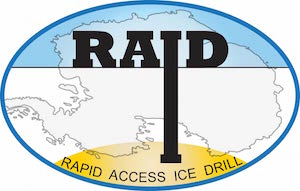2nd RAID Science Planning Workshop, 2024
Science Planning Workshop for Research with the Rapid Access Ice Drill
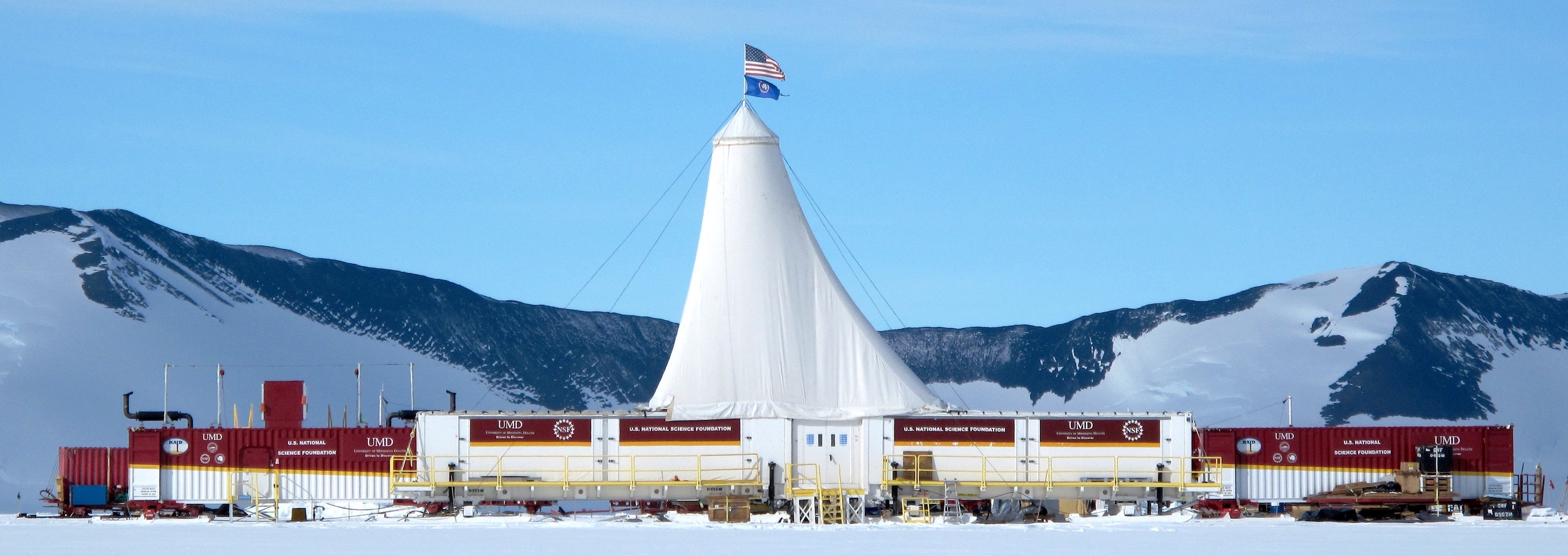
WORKSHOP ORGANIZATION
Interested researchers participated in a science planning workshop to help shape future interdisciplinary research with the Rapid Access Ice Drill (RAID). Goals and outcomes for the workshop are outlined below.
Goals of the workshop: The Rapid Access Ice Drill (RAID) is ready for Antarctic ice-sheet exploration! RAID completed successful field trials in the 2019-20 austral season (see Field Blogs), as summarized in this paper (Annals of Glaciology, 2021). Since then, RAID has completed a series of important tooling upgrades and technical improvements. With new developments in knowledge of subglacial materials & basal ice-sheet environment, new technologies & micro-instrument methodologies, discovery of very old (up to 4 m.y.) ice from blue ice fields, and an engaged new generation of young cryosphere & solid-earth scientists —
Now is a good time for a 2nd planning workshop to reunite the community & articulate the future science that we want to do with RAID!
Outcomes of the successful workshop held in September 2024 in Virginia are summarized below.
When:
Wednesday, September 25, 2024 — Half-day afternoon session for Early Career Researchers at NSF-HQ
Thursday-Friday, September 26-27, 2024 — Full 2-day workshop
Where: Washington Dulles Marriott Suites hotel, Herndon, VA. The hotel is an excellent venue for a workshop of this type, being located just a few miles from Dulles airport (IAD), and accessible by free hotel shuttle and other ground transport.
Who: The workshop was open to all scientists interested in using or contributing to the science enabled by RAID. We especially encouraged young investigators and under-represented groups to participate.
Conveners:
Sarah Shackleton (Woods Hole Oceanographic Institution)
John Goodge (Planetary Science Institute)
Allie Balter-Kennedy (Lamont-Doherty Earth Observatory)
Shuai Yan (University of Washington)
Jeff Severinghaus (Scripps Institution of Oceanography)
Sponsor: NSF Office of Polar Programs
Workshop schedule and agenda can be downloaded here.
Expression of Interest: Online expression of interest forms were collected over the summer, 2024.
Early-career attendees: Travel support was provided to 15 Early Career participants, with focus on current PhD students, post-docs, and early career professionals. Support was considered by application.
Cost: There was no registration fee. Most meals were provided to all participants during the Workshop. Rooms in the Workshop hotel were available at a discounted rate. Travel support was available for 15 Early Career participants (by application), with preference given to young and under-represented investigators.
Workshop goals — RAID is a multi- and inter-disciplinary research tool. To utilize its full capacity, we discussed how to:
(1) rejuvenate & grow scientific user community for RAID;
(2) enable new generation of early-career scientists in cutting-edge Antarctic research;
(3) promote inter–disciplinary research synergies, including use of new cryosphere technologies;
(4) engage the geophysical community for reconnaissance, site selection & data analysis;
(5) help integrate RAID and COLDEX activities;
(6) stimulate new cross-disciplinary research & proposal collaborations;
(7) develop new concepts to support traverse platforms in Antarctica; and
(8) create a new Long-Range Science Plan for RAID based on community research goals & priorities for future drilling.
Early Career focus — A program for early-career researchers (ECR’s) will included:
Travel support
Mentoring on professional development, science problems & approaches to Antarctic research
Research posters
Half-day ECR program with NSF representatives —
ECR community building
Perspective on future of Antarctic fieldwork, proposal process, and communication strategies with the NSF
Current & future research projects by ECRs
Q&A with program managers
Multi- and inter-disciplinary research — The workshop assembled a diverse group of participants from a wide variety of research fields, including:
-
- old ice dating
- paleoatmospheric records
- paleoclimate reconstructions
- subglacial exposure histories
- subglacial geology
- heat flow
- glacial & solid-earth geophysics
- glaciology
- ice-sheet dynamics
- borehole logging
- glacial bed mechanics
- thermal and landscape histories
- subglacial sedimentology
- potential-field geophysics
- seismology
- glacial-rebound geodetics
WORKSHOP OUTCOMES
-
- Stimulating pre-workshop meeting for Early Career participants with NSF program officers.
- Articulated key science questions driving research both within disciplinary domains as well as in inter-disciplinary context.
- Identified potential drilling targets, both as driven by science goals and considering logistical feasibility.
- Writing ‘proposition’ reports by domain (see below).
- Discussed alternative logistics to support the RAID platform, primarily including alternatives to USAP, NGO’s, and international collaboration.
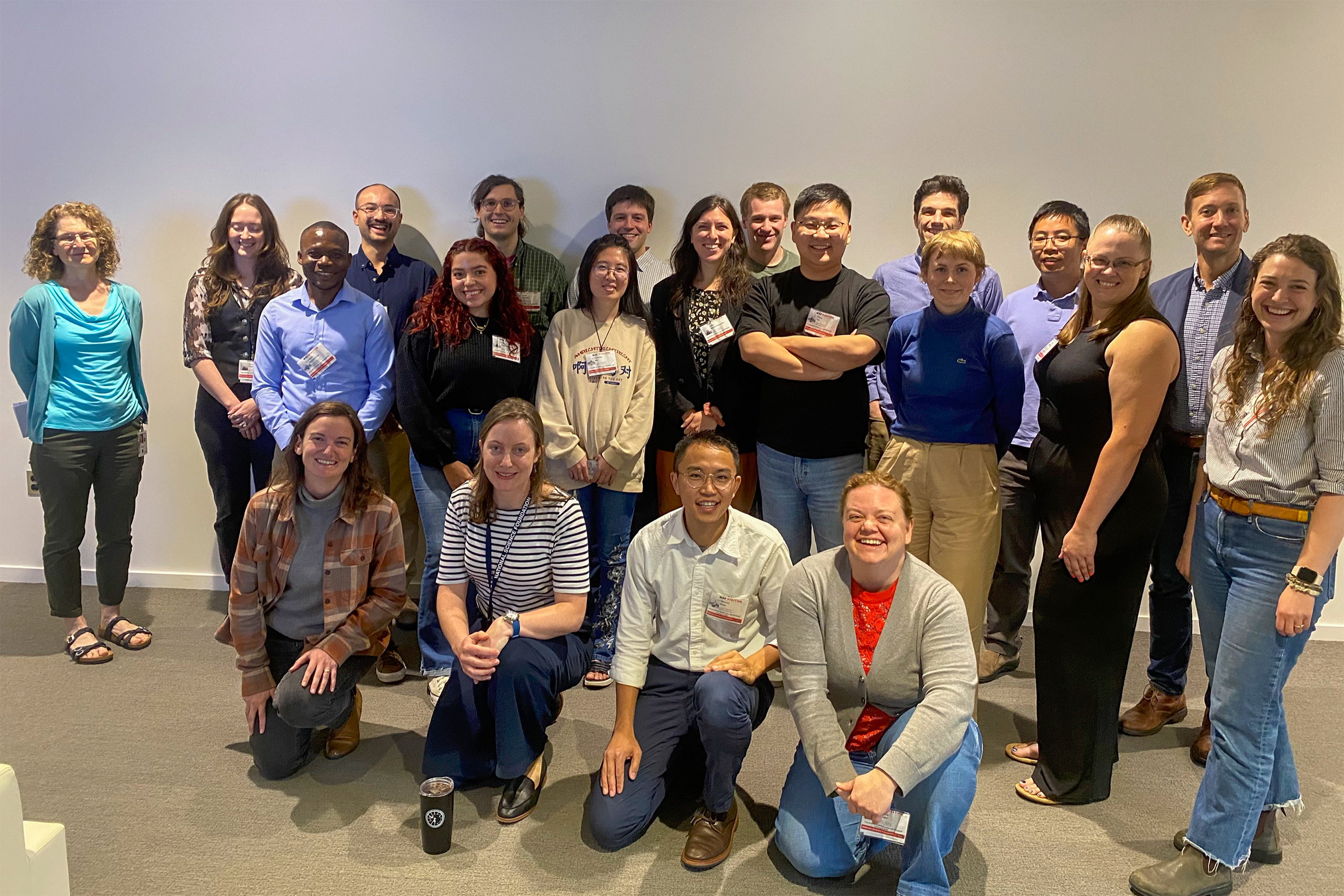
RAID Early Career group meets with program officers at the NSF.
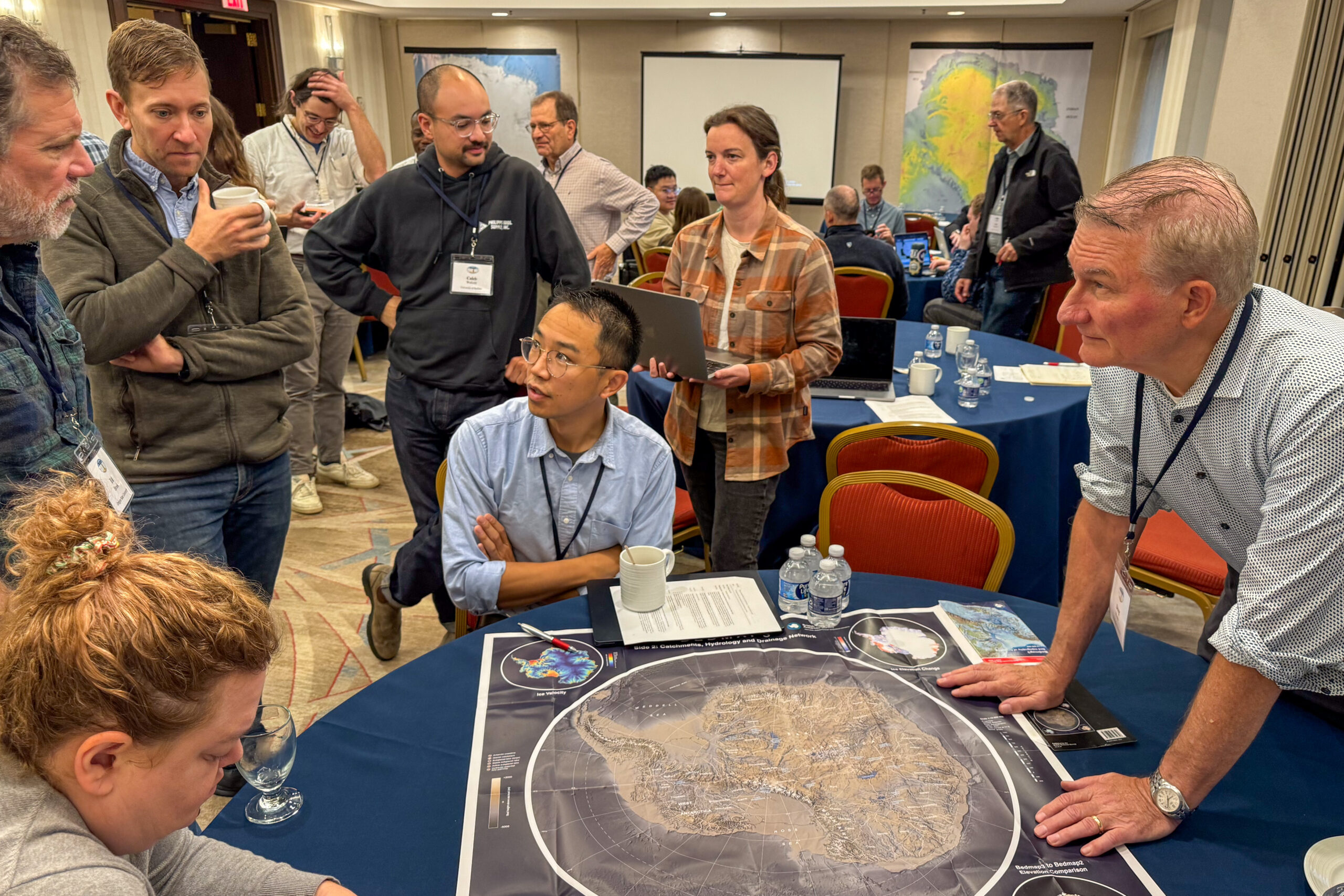
Workshop participants eagerly exchanged ideas about how to use RAID and where to drill.
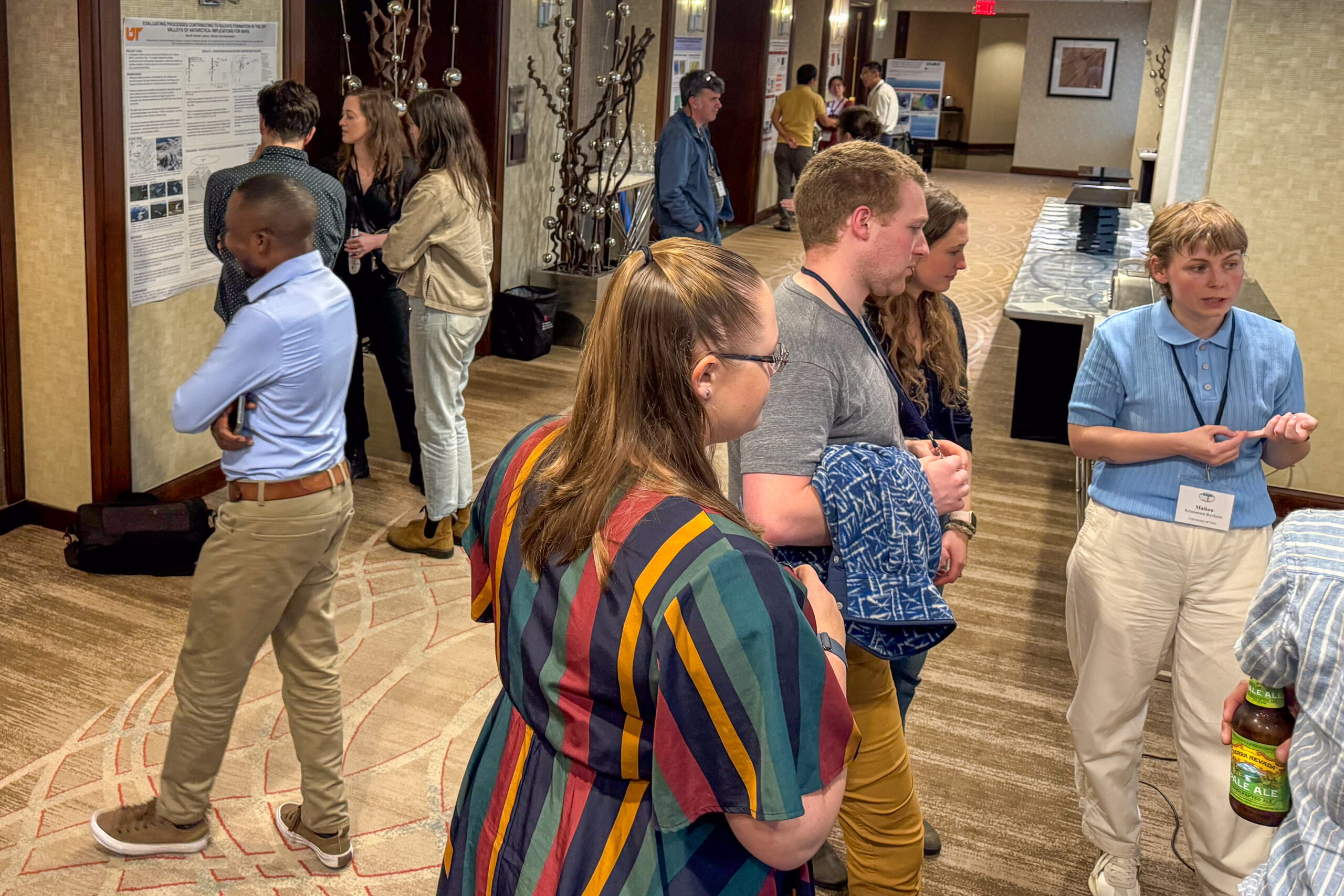
Displaying research posters provided a lot of opportunity to meet new people, share research, and set up new collaborations.
Disciplinary reports are being prepared to articulate science goals and identify potential drilling targets. Our disciplinary themes or ‘domains’ include:
-
- Ice-core science (glaciology & ice dynamics)
- Ice-core science (paleoclimate studies)
- Glacial bed interface (materials and processes)
- Subglacial sampling (sediment and bedrock)
- Borehole access and instrumentation (geophysics, geodetics, heat flow)
Reports will be publicly available when completed.
Workshop participants from all disciplines advocated that RAID be available to drill inter-disciplinary targets at the locations shown in the images below.
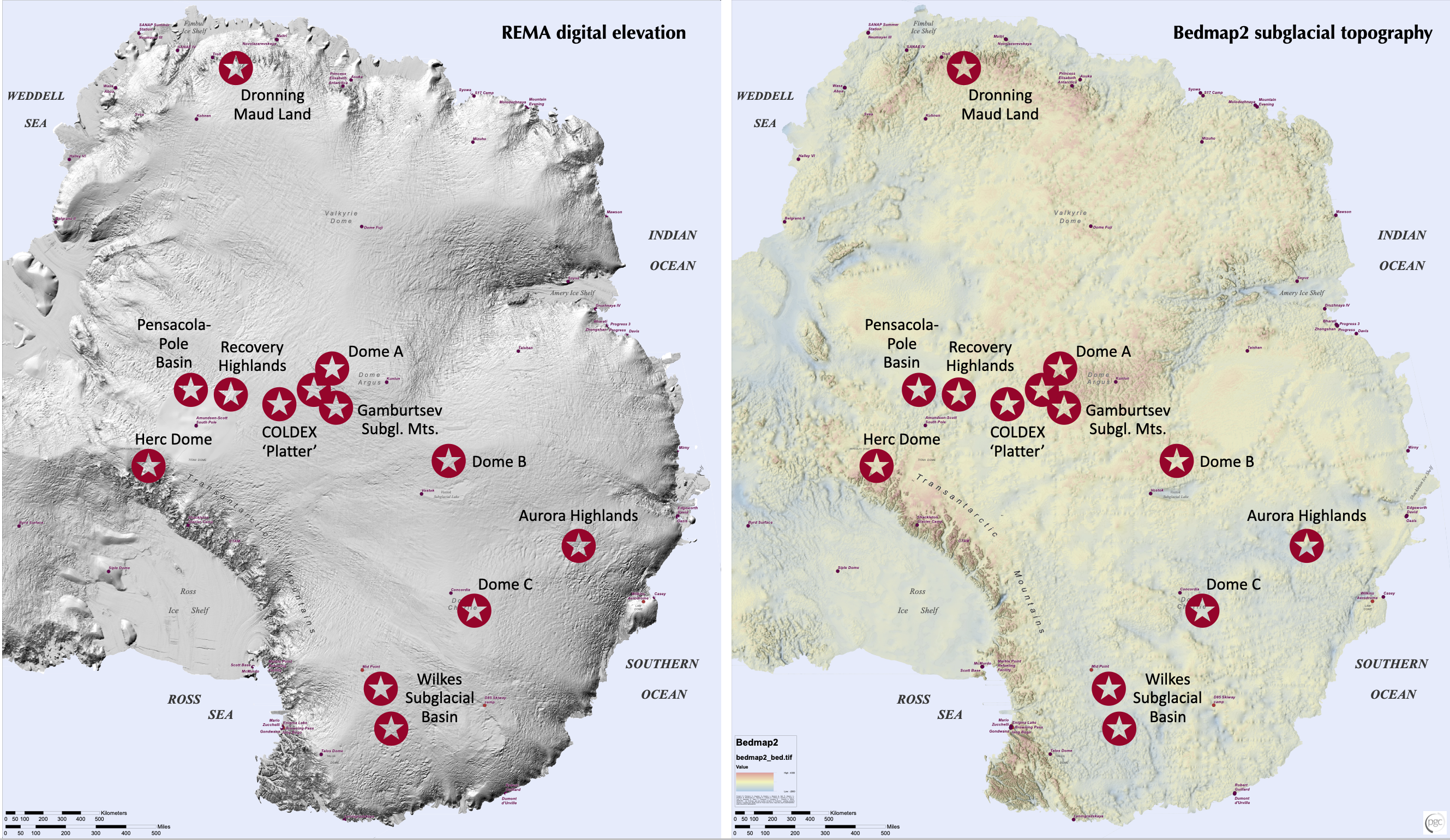
What is RAID?
The Rapid Access Ice Drill is a mobile system capable of rapidly drilling deep boreholes in the Antarctic ice sheets and retrieving cores of deep ice, the glacial bed, and bedrock below. It can provide a critical first look at the interface between major ice caps and subglacial features over a wide area. RAID is designed to enable interdisciplinary research, including direct observation at the base of the modern ice sheets, access to polar paleoclimate records in ice >1 Ma, and recovery of billion-year rock cores from ice-covered East Antarctica, among many other multidisciplinary topics of interest that RAID can address. Because of its traversing capability, RAID can quickly make deep boreholes that will remain open for future down-hole observation. The RAID system was designed and optimized for drilling and coring in dry, frozen-bed conditions as will be encountered in the thick East Antarctic ice sheet. The initial operating region for RAID will be in a broad corridor between South Pole station toward the ice sheet interior toward Dome A.
What can RAID do? With an ice-cutting rate of up to 3 m/min, RAID is capable of making rapid boreholes in thick ice followed by coring in ice, the glacial bed, and subglacial bedrock.
Example drilling targets include:
-
- ice borehole — laser/optical logging to determine age of ice; acoustic log of deformation
- short ice cores — reconnaissance sampling of ‘old’ ice (>1 Ma?)
- glacial bed — ice flow conditions, basal material, microorganisms
- short rock cores — samples for age dating, composition, surface exposure ages, crustal and uplift history, validation of potential-field characteristics
- rock borehole instrumentation — heat flow, seismology, geodetics
RAID status: RAID is currently on the ice and has completed successful field tests. Recent developments include:
-
- design completed in late 2013
- construction and outfitting of modules began in Utah in mid-2014
- construction of cryogenic ice-drilling facility in Utah in early 2015
- North American test of key components and drilling rates completed in March 2015
- fabrication and construction of all major sub-systems in Utah in 2015
- completion of integration and validation in October 2015
- commissioned in early November 2015
- shipment to Antarctica complete in January 2016
- winter-over storage in McMurdo
- Antarctic Field Trials completed near McMurdo Station during the 2016-17, 2017-18 and 2019-20 austral field season
- retooling and redesign of major components and tooling in 2021-24
